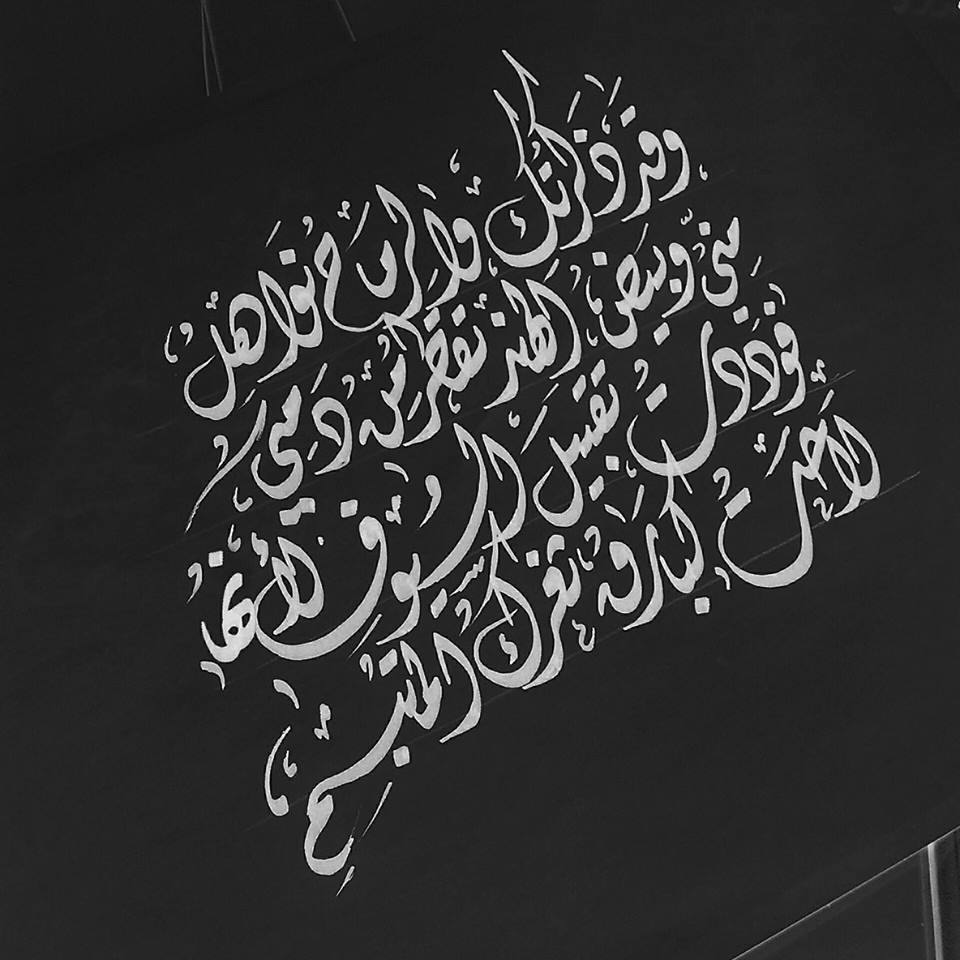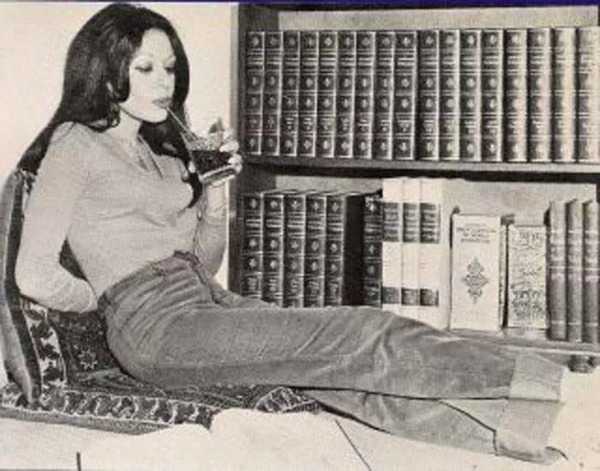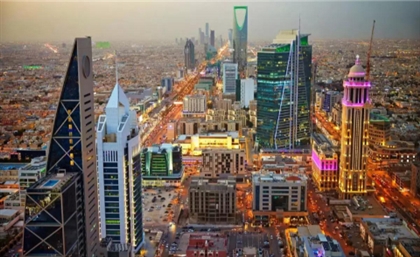7 Poets That Have Reshaped Arabic Verse
Gothic Arabic-language images, resistance poetry, the personification of the devil, and more; welcome to Intro to Arabic Poetry 101.

Poetry and its poets have been called a lot of things over the ages and across all cultures. Once viewed as the demonic hallucinations of possessed spirits, this most refined mode of human articulation was also seen at times to be a curse upon the best poets, which caused them to spiral into depression and madness. Plato opined at one point that poets were not more sophisticated or intellectual creatures, but simply vessels thorough which divinity passed and of which they had no clear and accurate comprehension. But even for the realists who shy away from all things divine (and fatal), poetry has never and can never possibly be boiled down to simply a ‘genre of literature’. Did your arms not shake in awe when reading one of William Butler Yeat’s poems? Did Emily Dickinson’s storming sublime Gothic majesty not smashingly strike your spine? Did Mahmoud Darwish’s poems not shatter your heart, like glass, against the walls of your chest?
To quote Edgar Allan Poe, “if a poem has not ripped apart your soul, you haven’t experienced poetry.” And so this is dedicated to those whose souls have been ripped; those among us who, at least once, slammed a book of verse shut because the poem was – literally – taking their breath away. However, given the sad fact that a few of us are readers of their own language, here's an introductory list for those who are encouraged to delve into the otherworldly sphere that is Arabic poetry.
Mahmoud Darwish 
Mahmoud Darwish established himself and his phenomenal poetry at the ripe age of 24. The lyric poet - who was able to articulate through piercingly beautiful, deep, and realistic images of the Palestinian - makes John Donne sound like an amateur. The abundantly rich imagery in his poems, and that effortless transcendence of time and space, create a poetic sphere whose keys only he possesses, and which can be accessed through no other poems except his. The humanity in his poems embrace most warmly the picturesque metaphors and personifications that he shapes so malleably to deliver an intellectual and universal message, uncovering a level of philosophy almost unmatched by any other poet.
“The cypress broke like a minaret,
And slept in the road on the dryness of her shadow,
Green, dark, as she was.
No one was hurt.
The carriages hurriedly passed over its branches
And there was dust”.
No one depicts the raw state of melancholia like Darwish.
‘Antara (Bin Shaddad) 
A lot of tales have been written (and partially documented) about ‘Antara, a Jahili poet who was born to an Arab noble and a dark-skinned slave mother, whose skin colour he inherited, turning him into a slave at the start. After winning many battles displaying his bravery and chivalry, ‘Antara was said to have gained his freedom and became one of his tribe’s renowned heroes. ‘Antara was in love with cousin ‘Abla, but due to his status as a slave and the colour of his skin, the entire world (including ‘Abla) refuted his love and even ridiculed it, as did his uncle, ‘Abla’s father, who also put a ransom on his head. Eventually dying from poverty, ‘Antara left us a collection of the most awe-drenched lines that would make the reader feel as if their skin is being peeled by the unimaginable impact of his words on those who understand it and know his story. His poems, mostly about ‘Abla and a self-praise of his knightly traits – perhaps in the aim to impress her, are most evident in his mu’llaqa. Folded in this epic poem is ‘Antara’s most renowned lines and the most moving ones maybe in the history of love poetry.
“And I remembered you as the spears
Were assailing me and the white of swords
dripping with my blood
So I desired to kiss the swords because
They gleamed like the shining of your smile”
Amal Dunqol 
The Nasserist poet known for the revolutionary and nationalistic rhetoric in his poems has iterated through Arabic poetry some of the most influential statements and the most defiant. Pressing for a constant state of revolt against the oppressor, and even against the self, the Egyptian poet is seen not only an icon for gentle, transparent, and punchy poetry, but also a nationalist thinker and intellectual who has always defied authority and oppressive castes. Perhaps his most famous poems is La Tosaleh, translating to Do Not Make Peace. However, my personal favourite is Spartacus’ Last Words, which openly asks the readers to defy political authority at the time and enamour their souls with a Camusian sense of rebellion.
“Glory to the devil,
Who said “no” in the faces of those who said “yes”,
Who taught Man to rip nothingness
Who said “no” and did not die
And so remained a soul perennially in pain”
Salah Abdul Sabour
Sadly not as popular as Dunqol or other Egyptian poets, Salah Abdul Sabour has added to Arabic poetry a lot of richness, perhaps the most striking of which is a tint of Gothicism. Going against the ‘classic’ grain in Arabic poetry, and the ‘conservative’ one, Abdul Sabour has braved into the dark seas of Romantic Gothicisim in Arabic poetry, granting his poems a blackish purple aura that is unmatched in the poems of other Arab poets. Expressing through his mysterious and dark words a sense of human alienation and loneliness, the Romantic poet tints Arabic poetry with a flavour that leaves a bitter but glorious aftertaste in the minds of the reader.
“Our dead people
Your spirits would visit it in the unfolding fields of rye
And the low house in among the troughs
And the breeze of the night granting you magical feathers”
Salah Jahin
You might assume yourself unfamiliar with the works of this brilliant 3aami (colloquial) poet, but if you’ve ever listened to Egyptian band Massar Egbari and were impressed by their lyrics, then know that all thanks go to Salah Jahin, whose poetry was used as lyrics for the band's songs. Even though I'm personally not a fan of 3ammi poetry, Jahin is proudly the only exception as his poems carry within them a gentle but extremely powerful deep meaning that goes through your bones, despite their brevity. Writing about Egypt, the different shades of melancholy, and joy (which defies the purpose of poems, really), Jahin brings our souls a novel kind of food that is simultaneously intimate, like the waves of the sea.
“I am a young man, but I am a thousand years old
Alone, but within my ribs is a cluster,
Afraid, but my fear is of myself,
Deaf, but with a heart filled with talk
I wonder!”
Ghada Al Samman
Syrian poet Ghada Al Samman is most known for her novels and short stories, but few realise that the author, who was Ghassan Kanafani’s lover, is also a poet. Writing in first person narration, Samman’s style might be categorised as ‘classic’, where directly-conveyed messages of love contain an excess of imagery that usually is addressed to the lover himself. Even though Samman completely excels in novel writing and narration, her poetry is perhaps not as strong as her novels as it sometimes feels forced and too direct. The poems at points feel almost completely devoid of the poetic vagueness and implication that categorises (brilliant) poetry.
“I caught myself red handed
In being in love with you
Like a little thief
Stealing a loaf of bread…”
Nazek Al Malaeka

Iraqi poet Nazek Al Malaeka’s delicate style and proper use of language frame a group of carefully gathered meanings like a bouquet, characterising her distinct style with a rare gentleness of sad themes, almost similar to but not as abstract as Emily Dickinson’s. Unafraid of writing poems about sadness and pain, the starkness of the human state she describes almost completely collides and overlaps with the gentle language and the tranquil air of her writing. However, I find that perhaps the one thing that is more beautiful than her poems, is the poet’s name, which translates to ‘Arrow Angels’.
“And so [Pain] would not leave us or disappear
Off our roads once
He follows us as much as joyful presence
I wish we did not give him a drop to drink
On that gloomy morning”
While poets might be possessed creatures with eccentric behaviours and a hypersensitivity that might seclude them from the rest of the world, it's precisely that sensitivity and their melancholic eyes that have documented the human spirit and its struggles and defeats in the most chilling – and, yes, the most divine – of ways.
- Previous Article #GetScene: 7 Awesome Instagram Photos This Week
- Next Article 15 Of The Best Places To Get A Massage in Cairo
























